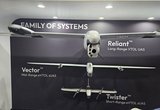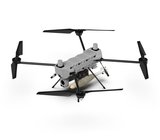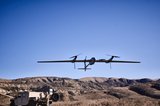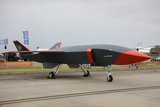AUSA 2024: Quantum-Systems targets big 2025 with UAS developments
Quantum-Systems has been upgrading its UAS family, with new versions of the Vector, Reliant and Twister drones set for release throughout 2025.
Bureau Veritas has joined the Remote Evaluation of Coatings/Corrosion on Offshore Machinery and Marine Structures/Ships (RECOMMS) project to develop UAVs with the ability to inspect steel structures in enclosed spaces.
The RECOMMS is a joint investment project. The primary objectives are to develop a steady, stable and reliable UAV capable of following pre-programmed flight paths, either pre-determined by 3D imagery software or flown by a pilot, using 3D simulator ship-specific training programmes.
In the first development phase, the UAV will be designed to carry an unobstructed HD camera as well as lighting and batteries with suitable strength, durability and longevity to execute structural and coating inspections within a ballast tank while providing clear images fit for comparison with close up inspection.
As a secondary goal, the project will also address the inspection of open space marine structures such as offshore wind turbine blades. Once tank inspection objectives have been met, the UAV will be designed with the ability to carry a sensor equipment payload with the end goal of performing paint and coating application analysis and steel thickness measurement.
This will lead to the development of a complete and marketable inspection UAV with software package.
Jean-François Segretain, technical director, Bureau Veritas, Marine and Offshore said: ‘The end goal is to be able to survey cargo spaces, ballast tanks and confined spaces remotely and effectively.‘If we can do this with UAVs we can help reduce risks to our surveyors and ship crews by minimising the need to erect expensive staging which would otherwise require surveyors to work at height or perform tank inspections by means of rafting.’

Quantum-Systems has been upgrading its UAS family, with new versions of the Vector, Reliant and Twister drones set for release throughout 2025.

The service has been using a Directed Requirement (DR) approach to speed up the deployment of a Medium Range Reconnaissance capability.

AeroVironment’s portfolio will grow thanks to the eVTOL P550 aimed at battalion-level tactical forces.

The Royal Australian Air Force is advancing its unmanned aerial vehicle (UAV) capabilities across three key programmes as it works with the likes of Boeing and Northrop Grumman to reshape Australia’s defence strategy.

Prototypes from Griffon Aerospace and Textron Systems recently passed through MOSA conformance trials and flight tests.

Funds for the second phase of this effort will be allocated in the US Department of Defense (DoD) FY2026 budget request.